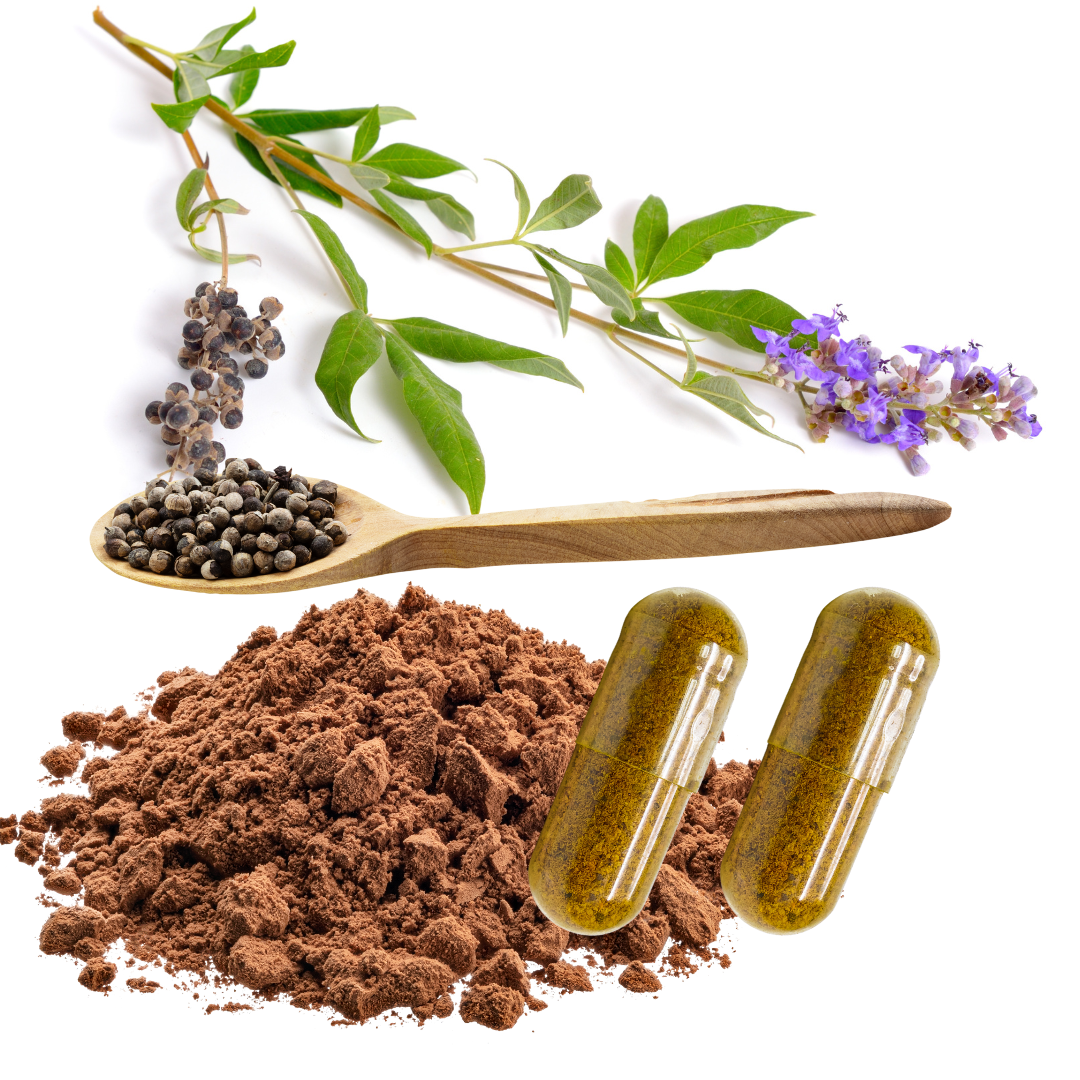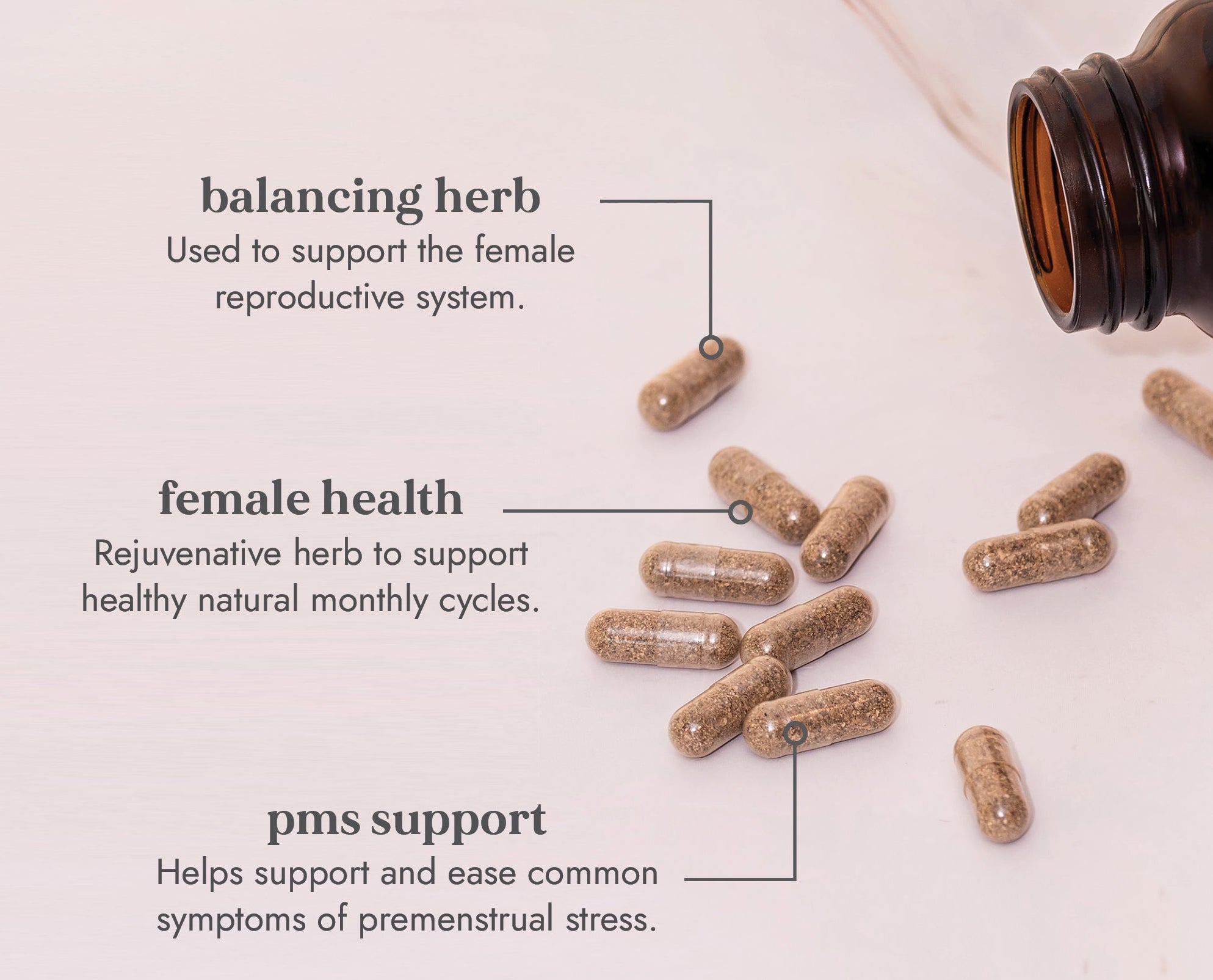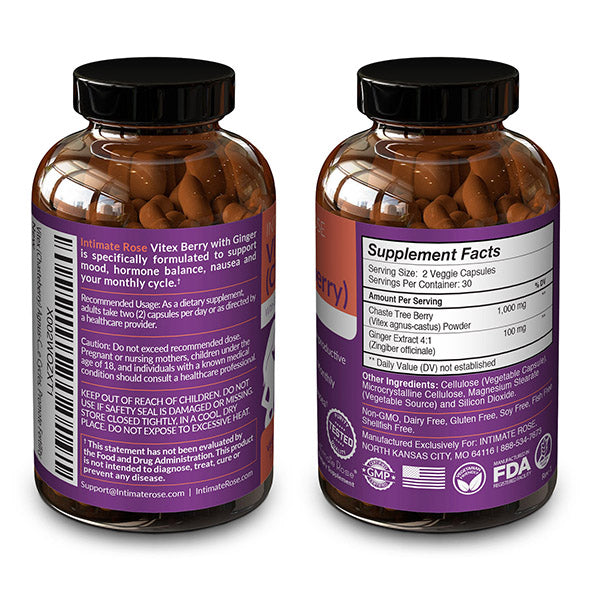


Date: 03 Oct 2025
Chasteberry, scientifically known as Vitex agnus-castus, is a small fruit from the Mediterranean region. Historically used to balance hormones, it is gaining recognition for its potential in alleviating premenstrual syndrome (PMS) and premenstrual dysphoric disorder (PMDD).

Chasteberry appears to act on the pituitary gland, reducing prolactin secretion and promoting balanced levels of luteinizing hormone (LH) and follicle-stimulating hormone (FSH).
This hormonal shift may increase progesterone and decrease estrogen, which is believed to ease PMS symptoms like breast tenderness, irritability, and mood swings.
Several clinical trials have demonstrated that chasteberry extract significantly reduces PMS severity compared to placebo or vitamin B6.
A meta-analysis reported that women using standardized Vitex preparations were 2.6 times more likely to experience symptom relief (NUNM). Many trials also compared Vitex to fluoxetine and found it similarly effective, often with fewer side effects.
Most benefits become apparent after two to three menstrual cycles, underscoring the need for consistent use.
Vitex is ideal for individuals experiencing cyclical PMS symptoms, including:
It is not a quick fix—Vitex requires 8–12 weeks to show noticeable improvement. It should be avoided during pregnancy, breastfeeding, or if taking dopamine-affecting medications or hormone therapy.
Chasteberry is generally safe. Some users report mild gastrointestinal upset, headache, or skin rash. However, serious side effects are rare and usually resolve after discontinuation.
Precautions:
Pair Vitex supplementation with:

Here are the best products available on Pharmily for those seeking high-quality chasteberry supplements:
A potent 300 mg extract combining chasteberry and Dong Quai. Dong Quai enhances blood flow and hormonal synergy, making this blend ideal for managing PMS symptoms such as mood swings and menstrual discomfort. The 90-capsule supply allows consistent use over three months, essential for optimal results.
Featuring a high-potency, standardized chasteberry extract, this supplement offers a daily supportive dose for hormonal balance. Suited to women in their luteal phase, it supports progesterone production and may ease mood, breast, and bloating symptoms.
Combining chasteberry with evening primrose oil (rich in GLA), this formula tackles both hormonal and inflammatory contributors to PMS. GLA may further relieve breast discomfort and mood changes, creating a multi-targeted approach over a 4-month supply.
For best results:
Chasteberry (Vitex agnus-castus) extract offers a scientifically supported, natural option for reducing PMS symptoms, particularly breast pain, mood swings, and bloating. Clinical studies confirm its efficacy alongside or in place of conventional treatments.
Pharmily Kenya’s top products—Now Chaste Berry 300 mg, Nature’s Best 500 mg, and LifeScience Vitex Blend with Evening Primrose Oil—provide high-quality solutions to support women seeking relief.
Always consult a healthcare provider before beginning supplementation, especially if pregnant, breastfeeding, or taking medication.
1. How long does it take for Chasteberry (Vitex) extract to relieve PMS symptoms?
Chasteberry extract typically takes 8 to 12 weeks of consistent daily use to show noticeable improvements in PMS symptoms. This is because it works by gradually balancing hormone levels over multiple menstrual cycles.
2. Can I take Chasteberry supplements during my period?
Yes, Chasteberry can be taken throughout your menstrual cycle, including during your period. Consistency is key, so it's recommended to take it daily, ideally in the morning with food, for best results.
3. Is Chasteberry safe to use with other medications or supplements?
While generally safe, Chasteberry may interact with hormonal therapies, dopamine-related medications, or certain fertility treatments. Always consult your healthcare provider before starting, especially if you're on medication or managing a health condition.
4. Who should avoid taking Chasteberry (Vitex agnus-castus)?
Chasteberry should be avoided by pregnant or breastfeeding women and those taking medications that affect dopamine (e.g., antipsychotics or Parkinson's drugs). It’s also not suitable for individuals with hormone-sensitive conditions unless advised by a doctor.